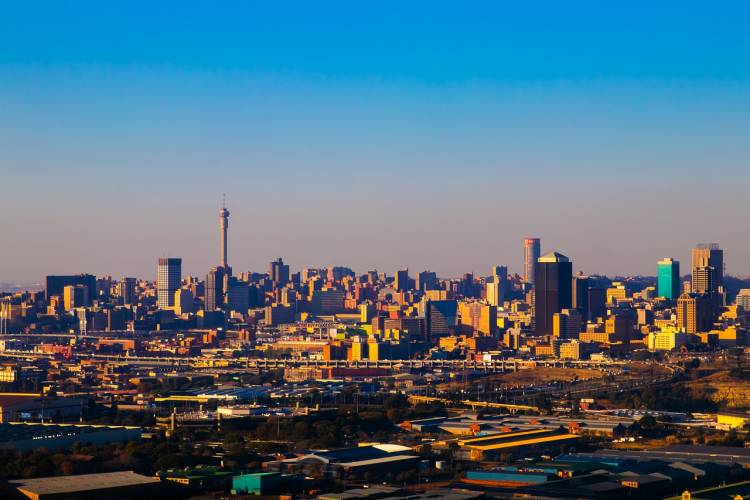Appetite for MBAs is on the rise in South Africa, says Anne Wilson, general manager of the South African Business Schools Association (SABSA), which has 19 members.
There are 6,000 MBA and master of business leadership students in the country, she says. Business schools have enjoyed a 23 percent increase in student applications since 2011.
Wilson puts this down to the growing reputation and quality of institutions, in part. The University of Stellenbosch Business School, University of Cape Town Graduate School of Business, and the Gordon Institute of Business Science at the University of Pretoria are all accredited by the Association to Advance Collegiate Schools of Business (AACSB).
Leading business schools from abroad have been keen to capitalize on the demand. Henley Business School in the UK established a campus in Johannesburg in 1992, giving local students more optionality.
But some overseas schools have faced criticism that they are exploiting the emerging world, flying in to capitalize on growth, inspiring memories of colonialism.
Wilson, however, insists there is room for local and foreign schools, because of the yawning gap in education provision. Nearly half the countries with similar size populations to South Africa have double the number of universities — South Africa has 26 serving 56m people.
But South African schools cannot afford to rest on their laurels, says Wilson. Many are insuring currency and relevance by partnering with schools on the African continent and beyond.
[See all MBA programs in South Africa]
The University of Cape Town Graduate School of Business (UCT), for example, joined Yale’s Global Network for Advanced Management, so that students and professors could study at some of 30 network schools around the world.
Public South African schools have also been buoyed by an influx of state funding, says Tim Mescon, chief officer for Africa at AACSB. Former president Jacob Zuma in 2017 made tuition free for first-year students from poor South African households, after widespread protests for fee-free learning.
 MBAs in South Africa: good value for money
MBAs in South Africa: good value for money
For overseas students, South African MBAs are still good value for money: the average fee is $16,459 USD, according to SABSA. Even at the top schools like UCT the MBA tuition fees are below $20,000 USD — a fraction of the cost in the western world.
Mark Stoddard, director of operations at the Association of MBAs, says: “A key challenge in the South African MBA market is to ensure activities are genuinely mindful of the poorest in society.”
The World Bank claims that South Africa is the most unequal society in the world, with 30 million people living in poverty. The unemployment rate sits at above 27 percent — one of the highest globally.
So most business schools have taken it upon themselves to improve all of society’s lot — social and community engagement programs are common.
UCT, for instance, was one of the first schools to make social innovation mandatory on its MBA, says Kosheek Sewchurran, its interim director.
Courses are also offered on enterprise development, responsible and impact investing. “This has become a significant draw card for students, who recognize that these skills are becoming increasingly important,” says Sewchurran.
The chance to make a positive contribution to social and economic development has proved popular with students from around the world. At UCT last year, 38 percent of the full-time MBA class came from outside the country (20 percent from other African countries and 18 percent from outside of Africa – largely from Asia, Europe and North America).
Sewchurran says this diversity — coupled with a weak local currency that’s beneficial for those who pay in dollars, euros or pounds — is a big advantage for overseas students.
This is because they gain a deep understanding of the political complexities and instabilities that go hand in hand with these emerging markets. And an ability to work in diverse teams and cultures — making students adaptative and resilient.
Africa alone has an estimated 1,500 to 2,000 spoken languages, which come with a diversity of etiquette and social mores.
“A student with full immersion in one of these culturally diverse, fast moving and innovative emerging economies will have an edge,” says Sewchurran.
 Post-MBA career opportunities in South Africa
Post-MBA career opportunities in South Africa
South Africa has grown to become the continent’s most industrialized economy — but there is a shortage of well-trained business leaders.
Though economic growth has slowed in recent years, Mescon at AACSB says: “It’s a robust economy and a high quality education locally gives you access to national or multinational companies with a footprint there.”
Many nations are sniffing out commercial opportunities. Saudi Arabia, for example, last year promised South Africa $10bn of investment, mainly in the power sector.
While the country’s unemployment rate is startling, only 1.7 percent of unemployed people are university graduates, according to Statistics South Africa.
At UCT over the past three years, 73 percent of full-time MBA graduates found employment in South Africa or abroad within 90 days, while 10 percent launched a startup. Management consulting, financial services and technology were the three biggest employment sectors.
Because national salaries are relatively low, graduates enjoy some of the largest pay increases on the planet. The average at top schools like UCT is up to $130,000 USD, which compares handsomely with pre-MBA pay of $32,000 USD, according to education marketing company Quacquarelli Symonds.
South Africa work visa challenges
However, for overseas students these rewards are harder to come by. Over the past three years securing work visas in South Africa has become increasingly fraught. It can take six months to process an application.
Schools say the bureaucracy is deterring employers from hiring overseas students. Even if work authorization is granted, recruiters can be unable to hire overseas students because they have to comply with a myriad of legislation to do so. This includes the Broad-Based Black Economic Empowerment (BBBEE) codes of good practice, which encourage companies to facilitate local job creation.
There are more headwinds for South African schools. Many stress the need to use more case studies focused on relevant issues for the African continent, where conditions can be vastly different from the prevailing western context.
“There is a shortage of such material from Africa, and local business schools are stepping in to remedy this,” says UCT’s Sewchurran.
For instance, the school’s Case Writing Centre was established in 2016 with a joint investment from the Harvard Business School Alumni Africa Club of South Africa. It has published 34 cases and they won numerous awards for being high quality.
A final challenge is that local students tend to score worse on average than people overseas on the GMAT, the business school admissions exam used widely around the world. This could dampen South Africa’s reputation, since GMAT scores contribute to rankings positions and students’ perceptions of cohort quality.
For this reason, many schools do not use the GMAT. UCT is one of the few that does. Perhaps as a result, its classes are smaller than rivals. But Sewchurran insists the caliber of the students is therefore high.
Current evidence suggests the quality will only increase, as more MBA students are drawn to one of the most dynamic but difficult parts of the world.










